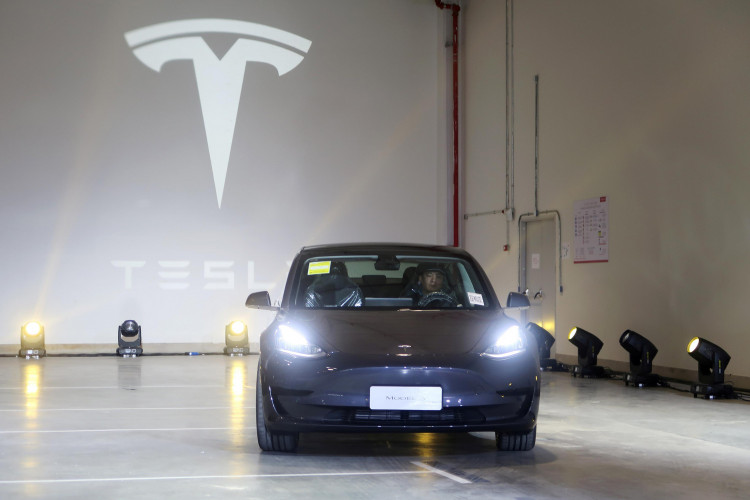Shares of Tesla Inc. plunged after data in China registration showed a substantial slowdown in deliveries before the US electric vehicle maker began feeling the burden from the coronavirus.
The entire market has been hammered in the past weeks as a result of the emergency crisis impacting not only China's economy but other regions as well. Tesla's shares have been down by as much as 11 percent, Friday morning.
Figures from LMC Automotive indicated that 3,563 Tesla cars were registered in China last month, up from 853 vehicles a year earlier, but fell from the 6,613 vehicles registered the month before.
Tesla registrations fluctuate from month to month, based on the LMC data. The car manufacturer usually makes many more cars in the final month of a quarter than in the first. In October last year, Tesla owners registered just 764 vehicles, LMC data showed.
While the company had bucked the trend in mainland China's weakening the electric car industry in the last two months, the January decline suggests that the US auto firm is not immune to challenges that the the broader market is facing.
China's car market perhaps is on its way for a third consecutive yearly drop as the outbreak worsens a turmoil sparked by an economic sluggishness and trade frictions: it created a selloff with Tesla's share price falling nearly 25 percent in the last five sessions.
The drop came after it was bared that Tesla's latest car registrations in China fell by nearly 50 percent. That's despite the carmaker rolling out over 2,600 cars at the Gigafactory in Shanghai in January and not only relying on importing cars from the US.
The electric car maker said earlier this month that the coronavirus outbreak would force them to delay new deliveries of the Model 3 cars in China. Tesla stocks were trading down at $685 and were poised for more session lows. On the bright side, Tesla's stock has been able to rally around 60 percent so far this year.
Tesla started delivering locally made Model 3s to Chinese clients last month, seeking to lift volumes in the midst of growing rivalry from the likes of Daimler AG and BMW, which are also unveiling new electric vehicles.
The sedans assembled locally to qualify for tax exemptions and subsidies the company has missed out on in the past. The timing of China's Lunar New Year celebration took a heavy blow on the company's year-on-year figures in the first months of the year. The holiday fell in January this year and in February in 2019.





